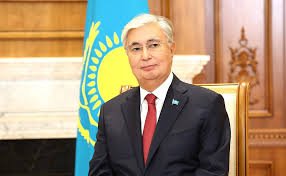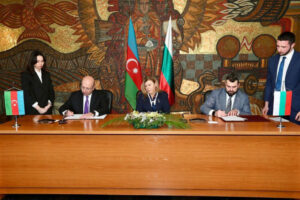Bulgaria Asserts Role as Active NATO Contributor Ahead of The Hague Summit, Pushes for Defense Modernization

Sofia, The Gulf Observer: Bulgaria is committed to defending its national interests and playing a proactive role within NATO, according to Defense Minister Atanas Zapryanov. Speaking at the forum “The Hague 2025: The Horizon Before NATO and the Bulgarian Vision” held in Sofia, the minister underlined Bulgaria’s equal influence within the alliance and called for urgent reforms to modernize its defense industry.
Zapryanov emphasized that NATO membership is not an endpoint, but an ongoing responsibility. “We are not just participants; we are contributors to NATO’s decisions on equal footing with larger allies,” he stated. With the upcoming NATO summit scheduled for June 24–25 in The Hague, Zapryanov stressed the importance of Bulgaria’s active preparation, particularly ahead of the May meeting of NATO defense ministers where key strategic decisions will be finalized.
Call for Modernization and Greater Defense Spending
One of the minister’s core messages was the need for accelerated modernization of Bulgaria’s military sector. He cautioned that without immediate action, Bulgaria risks falling behind on the European arms market within the next five to six years. “This is a historic crossroads for our defense industry,” he warned. “Failure to modernize would be a serious threat to our national and collective security.”
Currently, Bulgaria spends 2.09% of its GDP on defense, slightly above NATO’s recommended 2%, but Zapryanov noted this figure is still inadequate to support the country’s military transformation. He acknowledged ongoing debates about raising the target to 3–3.5%, emphasizing that such an increase should be viewed not as a political pledge, but as a strategic commitment to NATO partners.
Strategic Industry Reforms and Policy Shifts
Zapryanov also announced Bulgaria’s support for a European Commission initiative that would allow capital expenditures for military modernization to be excluded from national deficit calculations—a move that could relieve fiscal pressure and enable greater defense investment.
The more complex challenge, however, lies in transforming Bulgaria’s legacy Warsaw Pact-era defense infrastructure to align fully with NATO standards. The minister underscored that this transition is essential for Bulgaria’s defense credibility and future role in the alliance.
Vision Toward 2045
Zapryanov revealed that a comprehensive report outlining Bulgaria’s defense investment roadmap through 2045 would be submitted to the government next week. The report will provide a detailed vision for meeting NATO capability goals and ensuring long-term national security.
The event also marked the presentation of “Living Archives,” a publication chronicling Bulgaria’s path to NATO accession. The book offers historical insights into the country’s early 21st-century transformation and its ongoing integration into Euro-Atlantic defense structures.
As Bulgaria looks toward the NATO summit in The Hague, the message from Sofia is clear: Bulgaria is not merely present in NATO—it is fully engaged, reform-driven, and committed to contributing meaningfully to the alliance’s evolving security landscape.


